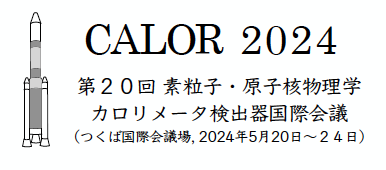Speaker
Description
Precision measurement of hadronic final states presents complex experimental challenges. The study explores the concept of a gaseous digital hadronic calorimeter (DHCAL) and discusses the potential benefits of employing Graph Neural Network (GNN) methods for future collider experiments. In particular, we use GNN to describe calorimeter clusters as point clouds or a collection of data points representing a three-dimensional object in space. Combined with AttentionTransformers and DeepSets algorithms, this results in significant improvement over existing baseline techniques for particle identification and energy resolution.
We discuss the challenges encountered in implementing GNN methods for energy measurement in digital calorimeters, e.g., the need for large training datasets, the large variety of hadronic shower shapes and the hyper-parameter optimization. We also discuss the dependency of the measured performance on the incoming particle angle and on the detector granularity. Finally, we highlight potential future directions and applications of these techniques.
